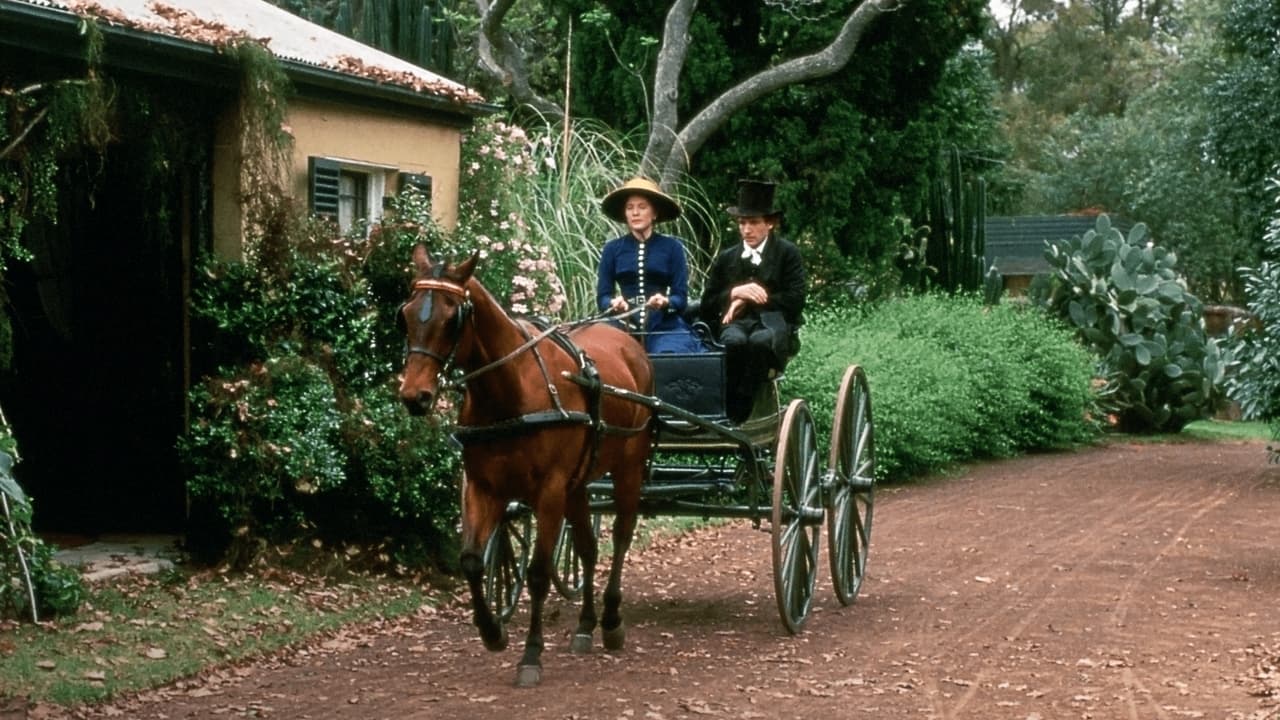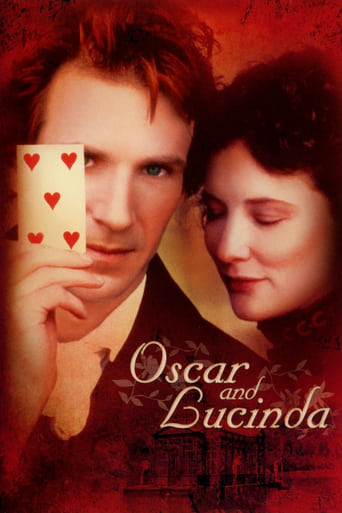ManiakJiggy
This is How Movies Should Be Made
Phonearl
Good start, but then it gets ruined
Beystiman
It's fun, it's light, [but] it has a hard time when its tries to get heavy.
pointyfilippa
The movie runs out of plot and jokes well before the end of a two-hour running time, long for a light comedy.
Kirpianuscus
film of a state. not an ordinary one, not easy to define it , unique, provocative, refuge and desert, giving brilliant performances and special atmosphere. a film for remind. old lectures, pictures and situations, characters and meets. and, in same measure, good opportunity to escape. in a fragile, convincing, ambiguous universe. it is a film who must see. for performances and for great cinematography. for lovely trip in the essence of things. and for the delicate portrait of life. and, maybe, for the flavor of a surprising parable. it is it. a trip. across vulnerable worlds and steps in the middle of a kind of fairy tale.
bevjohn
I hate to sound like a Philistine, but although I have enjoyed many an indy film that was slow and deep and unusual, I found 'Oscar and Lucinda' such a mish-mash of events, characters and crazy actions that I eventually was left simply shaking my head and wondering what on earth could happen next, while not really caring any more. I hated Ralph Fiennes as Oscar, wanting to jump into the film and cut his hair or give him a new hat and wardrobe. He plays a kind of holy fool, a sweet man overwhelmed by his own skinny limbs and awkward movements and tendency to have strange, non-epileptic fits. I appreciate the chances Fiennes takes here in playing such a character, but I'm afraid I prefer him as a romantic lead. Watching him in this role was as painful as it would be to watch, say, Brad Pitt play Lenny in "Of Mice and Men"--rather frustrating, and seemingly a waste of talent and good looks. Lucinda (Cate Blanchette) is a more sympathetic character, a tomboy shortening her skirts for greater freedom in an era of female repression. Still, why on earth would a business woman like Lucinda back the idea of making and transporting a solid glass church for some outback town in Australia, especially after several of her advisers point out that the congregation would surely be burned by the sun through the panes? Apparently, love of Oscar has blinded her to all reality. Or else it is her desperation to gamble that drives her do so despite all reason in this case.And the gambling! We know that respectable Christians at that time disapproved of gambling; and even today, gambling is perceived of as a dangerous addiction. Yet it still seems strange to see the social stigma Oscar and Lucinda face for their obsession. If these two characters kept losing, say, the rent money or food for their families, the social approbation might be more understandable. But they both win all the time. Besides, neither has a family, Lucinda is already rich, and Oscar gives his winnings to charity, so who is hurt by their betting? Only themselves, it would seem, and only because of Victorian religious mores, which appear to view gambling as some kind of horrid act like murder. In fact, Oscar gets away with murder, but he can't seem to escape being punished for his gambling habit.This is part of the irony and humor of the film, and irony can be by its nature, very frustrating, especially when tragedy lurks so close at hand at all times. It reminded me of a Thomas Hardy novel, filled as it was with frustrating happenstance and bad choices.The trip across Australia by the men taking the pieces of the glass church to its destination,seems to be so quick and apparently easy (with only one scene of a wagon mired temporarily by mud, for example, and no incidents of threats from the aboriginals) that we never really get the feeling that this is a very dangerous journey, especially comparing it to movies showing wagon trains crossing America around the same time, with the pioneers constantly in danger of attack by angry Indians. And yet we know that this must have been a rough journey; Gillian Amderson simply doesn't take the time to show us the difficulties. Yes, the scenery is beautiful, but not amazingly so--or at least, not for anyone who has seen the Lord of the Rings trilogy, shot in New Zealand. To a Canadian, this looks more like British Columbia than Australia, pretty but tame. In other words, viewers are not going to be so thrilled by the scenery that they will forgive the film's strange pace and frustrating character development. Only in the last few minutes do we get a satisfying sense of the film coming together. By then, it's a little too late.-
thegoauld
This is a beautiful movie. That's the best way I can find to describe it. It's odd and quirky and desperately sad, and it will stick in your memory for a long time to come. The leads are fabulous, I read the book before I saw the film and they were every bit as I'd imagined them. I'd recommend this film to anyone who wants to watch a romantic movie that follows none of the clichés of romantic movies. The soundtrack is great too, haunting and utterly, utterly perfect. Everything about this movie is right, the casting, the script, the look of the sets. The only reason I haven't given this movie 10 is that it doesn't measure up to the book it is based on.
Framescourer
Armstrong's screen adaptation of Peter Carey's bestseller is great fun - the character quirks that saturate the far from straightforward story are wonderfully realised by Fiennes (primarily) and Blanchette (looks great with dark hair). Fiennes can do indecipherable and broody for the rest of his life and make a good living but this is ample demonstration of his fluency with open disfunction.Despite these considerable points of interest however, the film suffers from it's inability to engage John Doe at the local Odeon - it can be a surreal experience. Watch it with your other half when you're both really loved-up. 5/10

